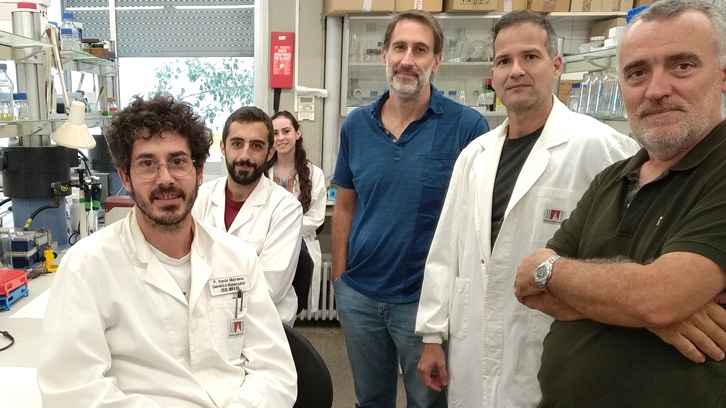Confusing to beat: interfere with bacterial communication as a strategy to fight antibiotic resistant pathogens

Bacteria communicate through signaling molecules (also called autoinducers) to coordinate gene expression and respond to environmental stimuli. This communication phenomenon is known as Quorum Sensing (QS) and constitutes an important regulation node in relevant biological processes such as virulence and antibiotic resistance. Accordingly,the components that regulate these QS systems represent very attractive targets for the design of new antimicrobial drugs.
Antibiotic resistance is one of the biggest threatsfacing humanity in the coming years. The increasing isolation of multidrug-resistant microorganisms (in some cases resistant to all known antibiotics) makes it urgent to explore new antimicrobial strategies.
Most antibiotics attack essential cell processes such as the integrity of the cell wall or the cytoplasmic membrane, nucleic acid metabolism, protein synthesis, etc. On the other hand, the QS, despite being an important regulatory node, does not represent a vital mechanism for the cell, but rather regulates population processes especially related to virulence. Disrupting the QS, therefore, in addition to generating "confusion" among the bacterial population, avoids the emergence of new resistance.
In this context, the UAB group, in collaboration with that of Ireland, have designed new molecules that have the ability to alter the QS systems of multiresistant pathogens present, among others, in cystic fibrosis patients. This work demonstrates how these molecules interfere with biofilm formation and significantly increase the susceptibility to existing last resort antibiotics.
The results, published in Future Medicinal Chemistry, are a proof of concept that validate the strategy of interfering with non-essential cellular processes to fight bacterial infections without favoring the emergence of new drug resistance.
Universitat Autònoma de Barcelona


